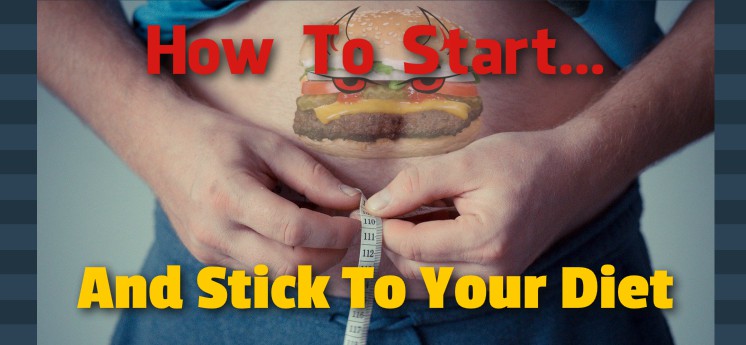The ketogenic diet has been increasing in popularity, and with all the chatter about its variety of benefits, it’s not hard to see why. Dieters rave about weight loss and a plethora of other benefits online. Physicians recommend keto to their patients as part of a management plan for all kinds of illnesses, including obesity, epilepsy, and autoimmune disease. Many call the diet a “lifesaver” and swear by its effectiveness. Social media is filled to the brim with people buzzing about how quickly they lost weight and became healthier- all thanks to keto.
But what exactly is the ketogenic diet? Here’s a quick overview of the basics of keto.
Please note that the ketogenic diet, while effective for lots of people, is a dramatic lifestyle change and it isn’t right for everyone. It’s important to always seek the advice of a doctor before beginning a new diet or making changes to your existing one. But it could be the answer to busting that belly fat
What Exactly Is Keto?
At first glance, keto seems almost counterintuitive; the basic principle of the diet is “consume fewer carbohydrates and more fat.” In fact, it’s recommended that dieters receive a whopping 80% of their calorie intake from fat, 15% from protein, and just 5% from carbohydrates. This macronutrient ratio may vary slightly from person to person, but the majority of a dieter’s caloric intake should come from fat. It seems to contradict the conventional wisdom that eating more fat leads to weight gain, but the human body’s metabolism is not quite that simple.
The body’s primary source of energy comes from carbohydrates, which are broken down into glucose for easier consumption. They provide quick, easy energy for the body to use, and with so much easy energy immediately available, other energy sources, like fat, are stored away for later. When carbohydrate intake is dramatically reduced, as it is with the keto diet, the body burns through its supply of glucose and must find an alternative source of energy. This ‘alternative energy’ is created by the liver, which breaks down body fat into an easily consumable source of energy called ketones. The body then enters a metabolic state known as “ketosis,” which is where the diet gets its name. This dramatic shift in energy source primes the body to burn fat more efficiently.
Potential Benefits
Two people following the ketogenic diet may experience entirely different benefits. They may also be following the diet for completely different reasons. As previously mentioned, physicians recommend keto to their patients for a wide variety of issues. Though it is commonly used for weight loss, keto has been used since the 1920s as part of a treatment plan for epileptic patients when their medications were ineffective. Its benefits stretch far beyond reducing seizures and assisting with weight loss, though, and some benefits dieters report include:
• reduced inflammation
• more restful sleep
• better attention, focus, and memory
• stable blood sugar levels
There is speculation in the scientific community about possible benefits for people suffering from neurodegenerative disorders. Some theorize that patients with diseases like Parkinson’s, Huntington’s disease, and Alzheimer’s could see benefit from the ketogenic diet. At this point, studies on the effectiveness of keto for these diseases are in progress, but none have been released. The diet’s effectiveness in managing them, and its theorized neuroprotective properties, have yet to be fully explored.
Potential Side Effects
A diet with so many positive effects is bound to have a few downsides. The most notable side effect reported by dieters is commonly referred to as the “keto flu.” During the body’s adjustment period, in which the supply of glucose is diminished, and the body begins to produce ketones, dieters often experience a set of flu-like symptoms. These include lethargy, nausea, joint pain, and hot flashes. These symptoms typically last for a few days before subsiding. Dieters may also find themselves eating less and drinking more water, as keto can significantly reduce appetite and increase thirst.
Other side effects worth mentioning are increased cholesterol and possible kidney strain. Naturally, a diet that’s high in fat can increase levels of cholesterol in the blood, and diets containing large amounts of red meat, as keto often does, can pose potential problems for the kidneys. It’s worth noting that there is much debate in the scientific community about whether the effects of the ketogenic diet can actually cause significant damage to organs such as the liver. The general consensus, though, is that keto does not pose any real threat to a dieter’s organs as long as the diet is followed as intended.
The Bottom Line
The ketogenic diet is increasing in popularity, and for good reason. It has a long history as an effective treatment for disorders like epilepsy. Not only is it a good weight loss method, but it’s also an excellent part of treatment plans for a wide variety of disorders. Despite its many observed benefits, there are several potentially serious side effects that are worth considering.
Keto is far more than just a fad diet: It is a big change from a standard diet, and if you are thinking of trying it, remember to seek the advice of a doctor before making any significant dietary changes.































![5 Tips to Decrease Delayed Onset Muscle Soreness [DOMS] 5 Tips to Decrease Delayed Onset Muscle Soreness](https://mensworldhq.com/wp-content/uploads/2019/11/Doms.jpg)







